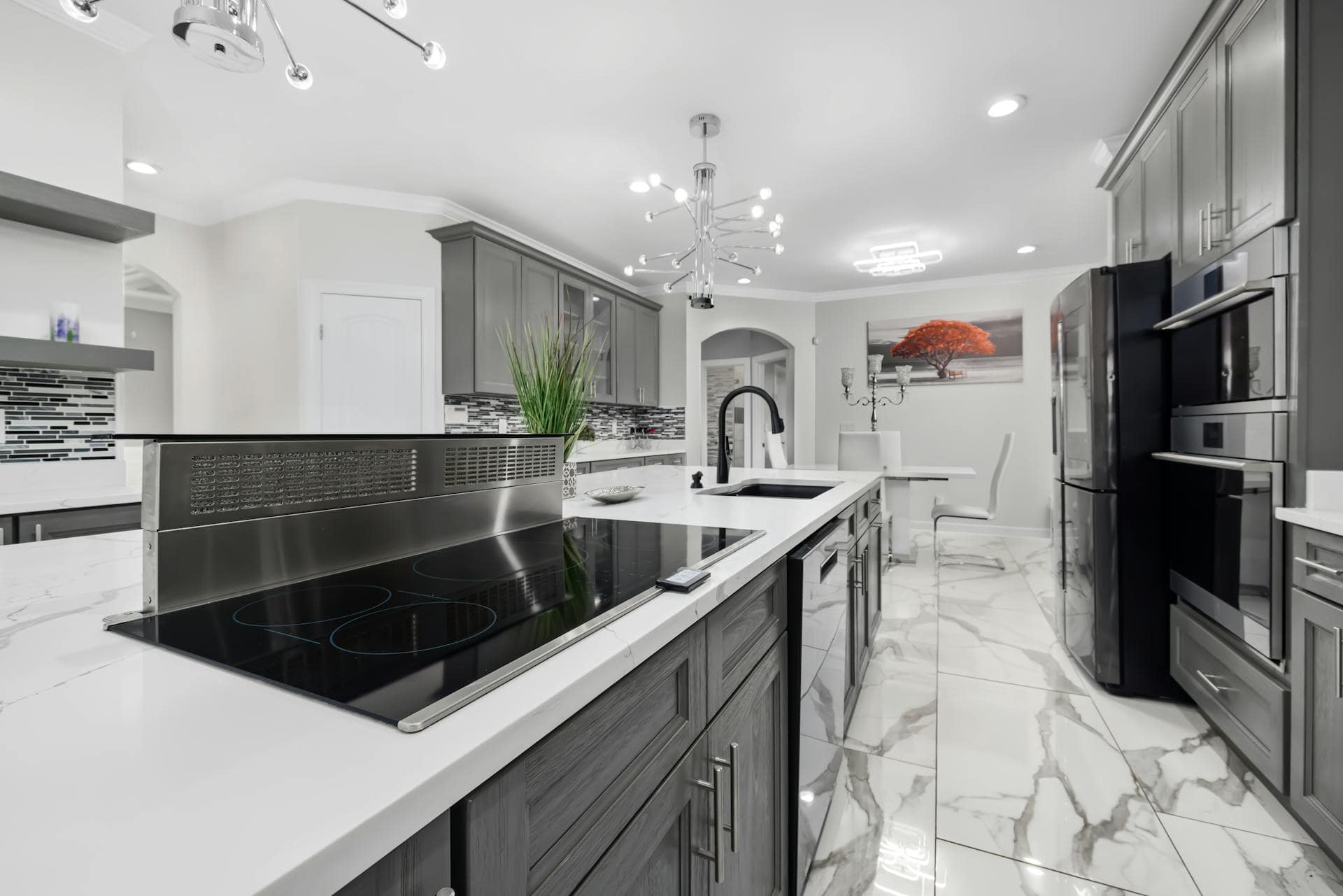
Question: What is the Most Durable Material for a Kitchen Floor?
Answer: Porcelain tile is considered the most durable material for a kitchen due to its hardness, water resistance, and stain resistance. Other durable options include natural stone and engineered wood.
Kitchen Floor Durability: Choosing the Right Material
A kitchen floor endures heavy foot traffic, spills, and dropped dishes. Homeowners want a durable, attractive, and easy-to-clean floor. This article explores various kitchen flooring options, examining their strengths and weaknesses to help you select the best material.
Porcelain Tile: A Top Contender
Porcelain tile offers exceptional durability. Its dense composition resists scratches, chips, and stains. Manufacturers fire porcelain at high temperatures, making it water-resistant and suitable for humid environments. Porcelain tile comes in various colors, patterns, and textures, offering design flexibility. You can choose tiles that mimic wood, stone, or concrete, adding style to your kitchen.
Click the link for more info about Blue Kitchen Refacing
Related Article: How Long Does Laminate Last in a Kitchen?
Related Article: How to Change a Kitchen Floor on a Budget?
Hardwood: Classic Elegance and Practicality
Hardwood flooring adds warmth and character to a kitchen. Engineered hardwood, with its layered construction, provides better moisture resistance than solid hardwood. Hardwood requires regular maintenance, including sweeping and occasional refinishing, to protect its surface. While spills require immediate attention, a well-maintained hardwood floor can last for decades.
Natural Stone: Beauty and Durability
Natural stone, like granite, slate, and marble, offers a unique, luxurious look. These materials withstand heavy traffic and resist scratches. Stone requires sealing to prevent staining and protect it from acidic substances. Each stone type possesses distinct characteristics, requiring specific cleaning and maintenance procedures.
Laminate Flooring: Budget-Conscious Choice
Laminate flooring provides a cost-effective alternative to hardwood. Its layered construction typically includes a wear layer, decorative layer, and core layer. Laminate resists scratches and stains, making it suitable for busy kitchens. Water can damage laminate, requiring prompt cleanup of spills. Modern laminate options offer realistic wood and stone visuals.
Concrete: Industrial Chic and Strength
Concrete flooring offers industrial-style aesthetics and remarkable durability. You can customize concrete with stains, dyes, and stamping to create unique designs. Sealed concrete resists stains and moisture, making it practical for kitchen use. Concrete’s hardness can make it uncomfortable to stand on for extended periods. Area rugs can add comfort and warmth.
Choosing the Perfect Kitchen Floor
Selecting the best kitchen flooring involves balancing durability, budget, and style. Consider your lifestyle, design preferences, and maintenance requirements. Porcelain tile and vinyl offer excellent durability and water resistance. Hardwood and natural stone add timeless elegance, but demand more maintenance. Laminate and concrete provide budget-friendly options with varying degrees of upkeep. By carefully evaluating these factors, you can choose a kitchen floor that meets your needs and enhances your home’s beauty. [ 1 ]
References
1. https://www.thespruce.com/durable-kitchen-flooring-options-1315000

Blue Malue Get in touch with Blue here.
